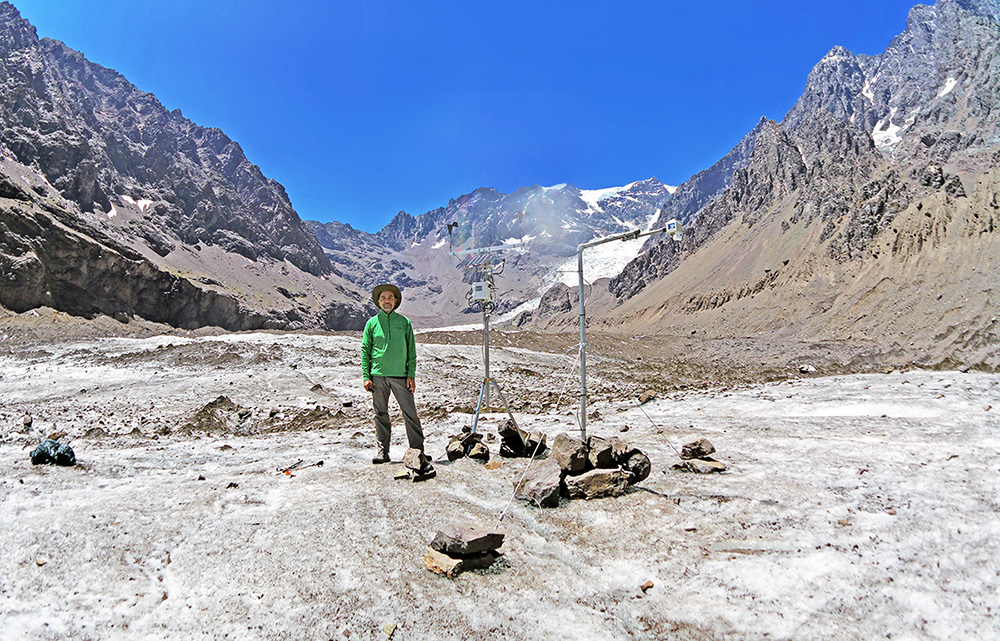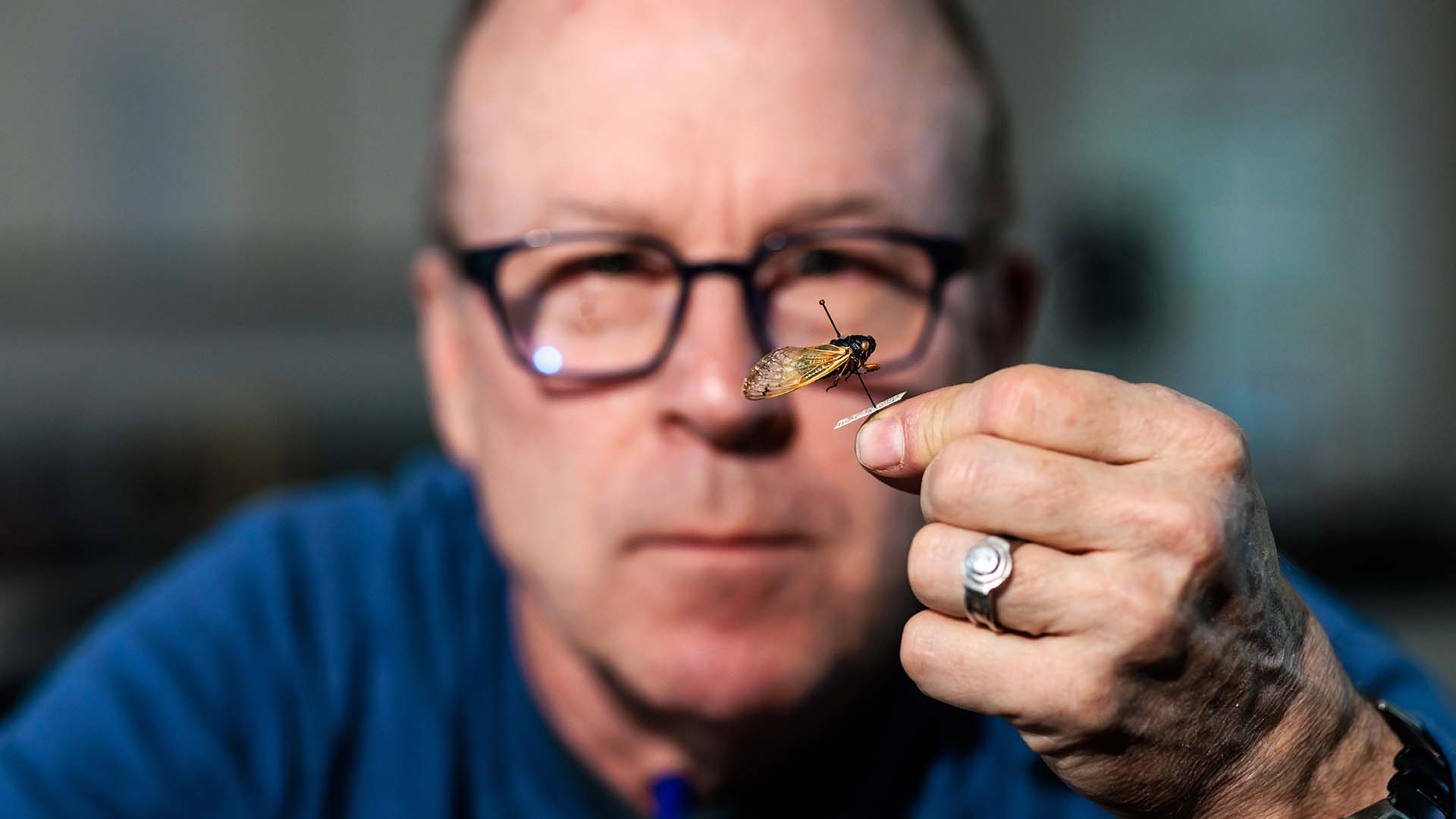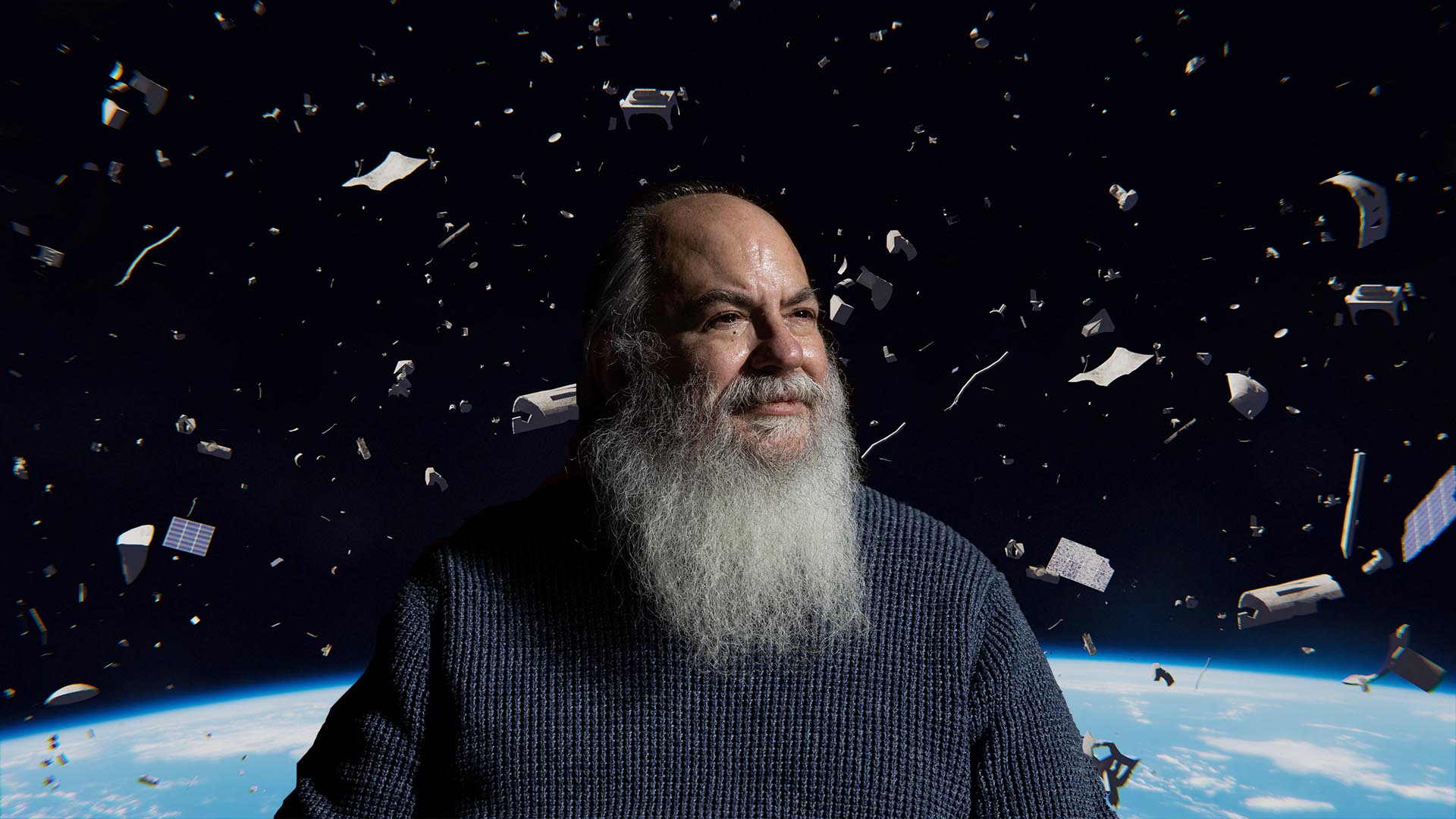The shape of water’s future
MSU Denver-led research in the Andes targets solutions to Chile’s dwindling supply.

Lane Hines loves the outdoors. Whether he’s fly fishing, camping, hunting or farming, nature has played an integral part in his life, helping to shape his upbringing as well as influence his future. Hines realized that all his outdoor activities were taking a toll on the environment and wanted a way to give back to the land. He decided that a bachelor’s degree in environmental science from Metropolitan State University of Denver was the way to go.
“People take so much, and there’s not always a lot to take, so it’s like, why not try to help figure some things out?” he said.
And that’s just what he’s doing. For the past two years, Hines has been a research assistant on a project led by Antonio Bellisario, Jason Janke and Sam Ng from the Earth and Atmospheric Sciences Department, studying water scarcity and sustainability in central Chile.

Hines was intrigued with the project because of his background in farming and potential applications of the solutions that result from the research in his future environmentally focused career. He grew up on a ranch and raised cattle.
“You live off of the environment. When you raise cattle and grow corn, alfalfa, crops, it’s all based off of the environment. You’re not going to do well if (there are problems). I wanted to look at the science for the solutions,” Hines said.
The research project has given Hines the chance to put classroom teachings into play, problem-solve on the spot (such as dealing with marmots eating data collectors) and help find solutions that could be implemented worldwide. He’s confident employers will love seeing these experiences on his résumé.
The project, however, is exponentially more than a résumé booster for those involved. The results from the research project, now in its fifth year, will be used to develop sustainable solutions for a dwindling water supply in Chile, but it’s reasonable to think the solutions could be used around the world in similar climates.
“We’re looking at the problem of a declining water supply and at the same time some of the mediating and adaptation measures for agriculture that can be implemented in a near future with less water,” Bellisario said.

The research is localized for now, but the climate in central Chile is classified as Mediterranean; other places such as California, Australia, South Africa and Greece also have Mediterranean climates. If solutions are successful in Chile, they could then be implemented in other places with Mediterranean climates.
The problem stems from a decreasing water supply connected to climate-change-induced droughts in the Aconcagua River Basin high in the Andes Mountains. The rivers are fed from snowmelt and meltwater from glaciers in the area. Research has shown a rising zero isotherm, which means less snow contributing to the water supply and heavier reliance on glaciers to feed the water supply.
Unfortunately, many types of glaciers in the region are unprotected and thus subject to destruction by mining companies. As the No. 1 copper-producing country in the world, Chile relies heavily on mining, which accounts for 10 percent of its gross domestic product. Mining companies go to extreme elevations to get their materials. Bellisario said there are at least eight instances of mining projects above 16,000 feet that have destroyed glaciers. If the glaciers are being destroyed and there is less snow overall and increased demand for water, then there will be huge problems in the future water supply.
However, Bellisario and team are working with local nongovernmental organizations such as Organizations of Water Users in the Aconcagua River Basin, other grassroots-level organizations that defend water and territory as well as government offices such as the General Directorate of Water Resources and the Ministry of the Environment to create laws and regulations to protect glaciers.
“Chile is going through a process of changing the water laws,” Bellisario said. “There’s a whole impetus now from civil society for glaciers to be protected.”
To a country such as Chile, where agriculture is a main contributor to gross domestic product, water is necessary to maintain a viable economy. The people know there’s a problem, and they want solutions.
Bellisario and team have plans to expand the research to all areas of Chile classified with a Mediterranean climate, but for now they are brainstorming solutions that can be implemented immediately. Doing a research project such as this is an opportunity like no other. For Bellisario, it is a chance to help the people of Chile and to lay the groundwork for solutions that could be taken to other countries that are in the same water-scarcity situation. For Hines, it is an opportunity to work with nature in a way that is sustainable and solution-focused.







